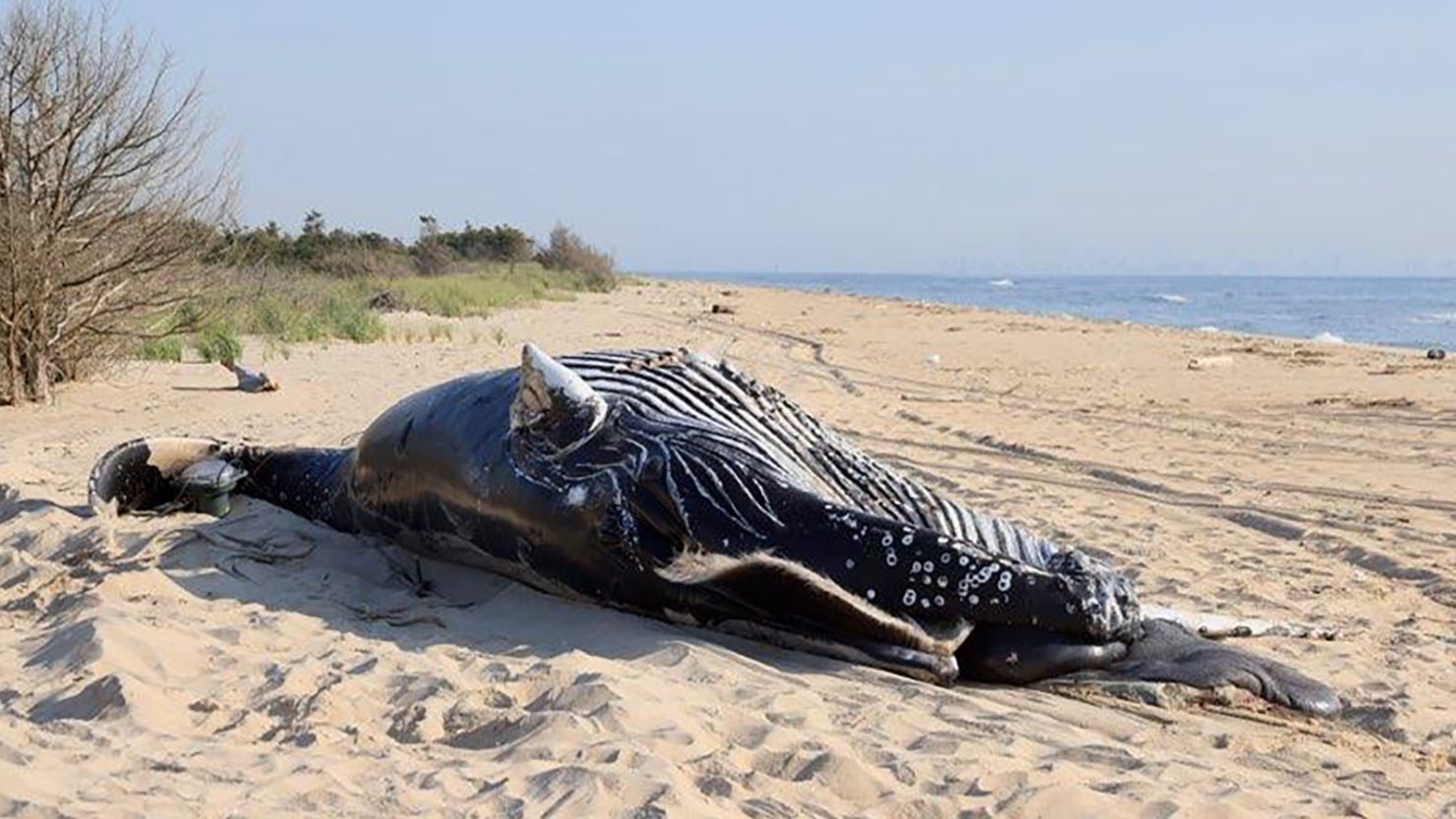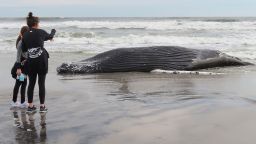Two humpback whales were found dead off the coasts of New York and New Jersey, according to local officials.
The National Oceanic and Atmospheric Administration announced the presence of the two whales in a Wednesday Facebook post. One whale was off Wainscott, New York, and the other in Raritan Bay, New Jersey, the agency said.
The Atlantic Marine Conservation Society and Marine Mammal Stranding Center performed necropsies on both whales, according to a Friday update from NOAA.
The first whale, which drifted into Shinnecock Inlet and was brought to shore in Southampton, was a 47-foot-long male, the agency reported. The cause of death was “suspected blunt force trauma.”
“While this carcass was heavily decomposed, scientists observed bruising in the blubber & muscle on both sides of the head,” the post said.
Samples were collected for further analysis and the whale was buried on the beach.
The second whale was a 28-foot-long female, the post said. The US Army Corps of Engineers and New Jersey Fish and Wildlife Service towed the whale from Raritan Bay to Gateway National Recreation Area in Sandy Hook, New Jersey, where the necropsy was performed.
This whale seemed to have been struck by a vessel, according to the post. It had “bruises, lacerations & fractures in several places across its body, including fractures on its skull & left pectoral fin, which had been severed.”
The cause of death was identified as “suspect blunt & sharp force trauma consistent with vessel strike,” the post said. Samples were collected and the whale was buried on the beach.
The two strandings were not related, according to the agency.
Humpback whale deaths on the East Coast have been on the rise since January 2016, according to National Oceanic and Atmospheric Administration records. The agency declared a “Humpback Whale Unusual Mortality Event Along the Atlantic Coast” in April 2017.
A total of 23 humpback whales have been stranded so far in 2023, including five in New York and seven in New Jersey, the agency reported.
The agency said while more research is needed to fully understand the cause of the deaths, 40 percent of whales that underwent necropsies showed “evidence of human interaction, either ship strike or entanglement.”
The massive sea creatures live in all the world’s oceans, according to the agency. Humpback whales can weigh up to 40 tons, be as long as 60 feet, and live up to 90 years old.
The whales’ population was seriously depleted by whaling up until the practice was banned in 1985, the agency noted. The species is still protected under the Marine Mammal Protection Act in the US, but vessel strikes and entanglement in fishing gear continue to pose serious threats.






